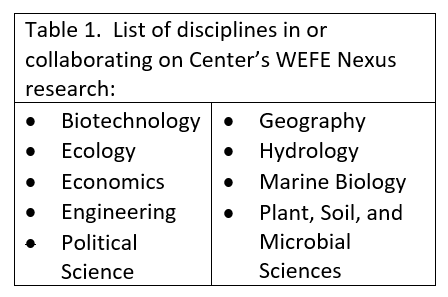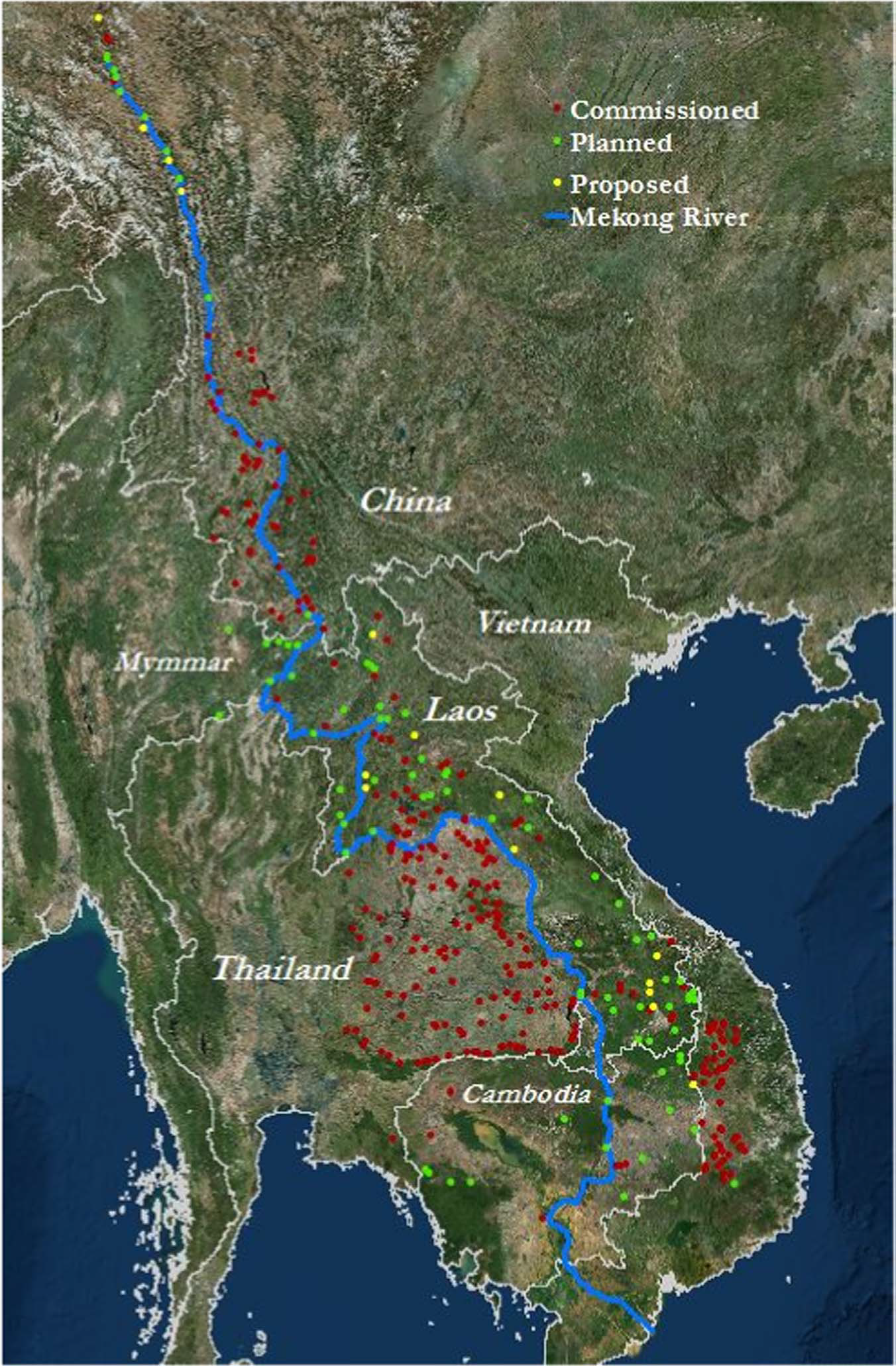Unlocking the Water-Energy-Food Nexus: Global Learning for Local Solutions
May 10, 2020
Is the hydro-dam a solution or a problem? MSU researchers at the Center for Global Change and Earth Observations (CGCEO) have something to say about that, but the answer is not simple, and it lies at the nexus of water, energy, and food ecosystems.

MSU Global Change Science continues to push the frontiers of understanding at this nexus. Here at the Center, researchers apply cutting edge technology to 1) observe and understand the dynamics of the Food-Energy-Water Ecosystems at a range of spatial and temporal scales; and 2) collaboratively develop solutions through innovations in science and technologies with our partners around the globe.
The researchers at the Center, together with their international colleagues, span a wide array of disciplines (Table 1). Collaborating groups connect dynamically through a growing body of shared data, method, and theory. Such connectivity reaches well beyond silos, uniting inquiries and answers into increasingly comprehensive and innovative models and, with them, ever better solutions to the new wicked problems posed.

Recent case studies of areas affected by hydro-dams -- in the lower Mekong River Basin, the Yangtze River Delta, the Ili-Balkhash Basin, the Amazon Basin -- demonstrate pioneering work by Center researchers and international partners in this area. Working with these case studies and in collaborations across ecosystems, Global Change Scientists have increased our understanding of the complex connections among the human and natural systems in these locations. At the same time, they are making significant contributions to building more effective tools, methods, and theory to shed many local lights on this growing area of global concern.
Now back to our opening question: “Is the hydro-dam a solution or a problem?” For decades, developers and politicians worldwide have emphasized the benefits of hydropower, and the construction of massive dams proliferated. While the pace of that construction has now slowed in most upper-income countries, that pace has accelerated in a number of lower and middle-income countries (with China, Southeast Asia, and Brazil all exemplary cases, e.g., Figure 1). Yet only recently have scientists been able to interact effectively across disciplines, by assembling the full set of data needed to describe the interconnections of water, energy, and food. Armed with this information, they are not only enabling a fuller understanding of the specific benefits of hydropower but also its associated costs. And they are doing so with increasing accuracy. Better information, in turn, makes for better policy.
To learn more about the Center’s research, be sure to check back often as we feature highlights from the Mekong River Basin research and work to provide an answer to that opening question: “Is the hydro-dam a solution or a problem?” You can also view the work of these and other MSU-WEFE collaborators via the following publications.
References
Endo, Aiko, Makoto Yamada, Yuji Miyashita, Ryo Sugimoto, Akira Ishii, Jun Nishijima, Masahiko Fujii, Takaaki Kato, Hideki Hamamoto, Michinori Kimura, Terukazu Kumazawa, and Jiaguo Qi, 2019, Dynamics of Water–Energy–Food Nexus Methodology, Methods, and Tools, Current Opinion in Environmental Science & Policy, https://doi.org/10.1016/j.coesh.2019.10.004.
Lin, Z., & Qi, J., 2017, Hydro-dam–A nature-based solution or an ecological problem: The fate of the Tonlé Sap Lake. Environmental Research, 158, 24-32.
Pokhrel Y., S. Shin, Z. Lin, D. Yamazaki and J. Qi, 2018, Potential Disruption of Flood Dynamics in the Lower Mekong River Basin Due to Upstream Flow Regulation, Scientific Reports 8:17767, DOI:10.1038/s41598-018-35823-4.
Pueppke, S.G.; Nurtazin, S.T.; Graham, N.A.; Qi, J. Central Asia’s Ili River ecosystem as a wicked problem: Unraveling complex interrelationships at the interface of water, energy, and food. Water 2018, 10, 541; doi:10.3390/w1005054.
Yi, J., J. Guo, M. Ou, S. Pueppke, W. Ou, Y. Tao and J. Qi, 2020, Sustainability assessment of the water-energy-food nexus in Jiangsu Province, China, Habitat International, 95 (2020) 102094; https://doi.org/10.1016/j.habitatint.2019.102094
